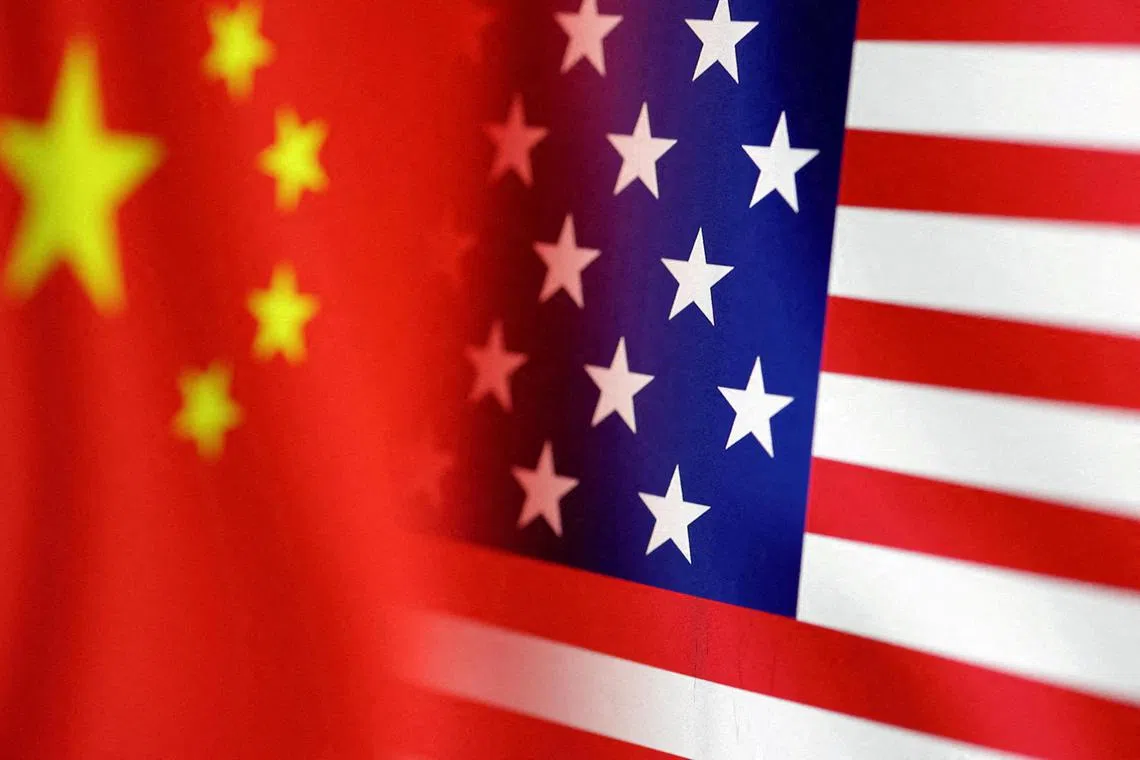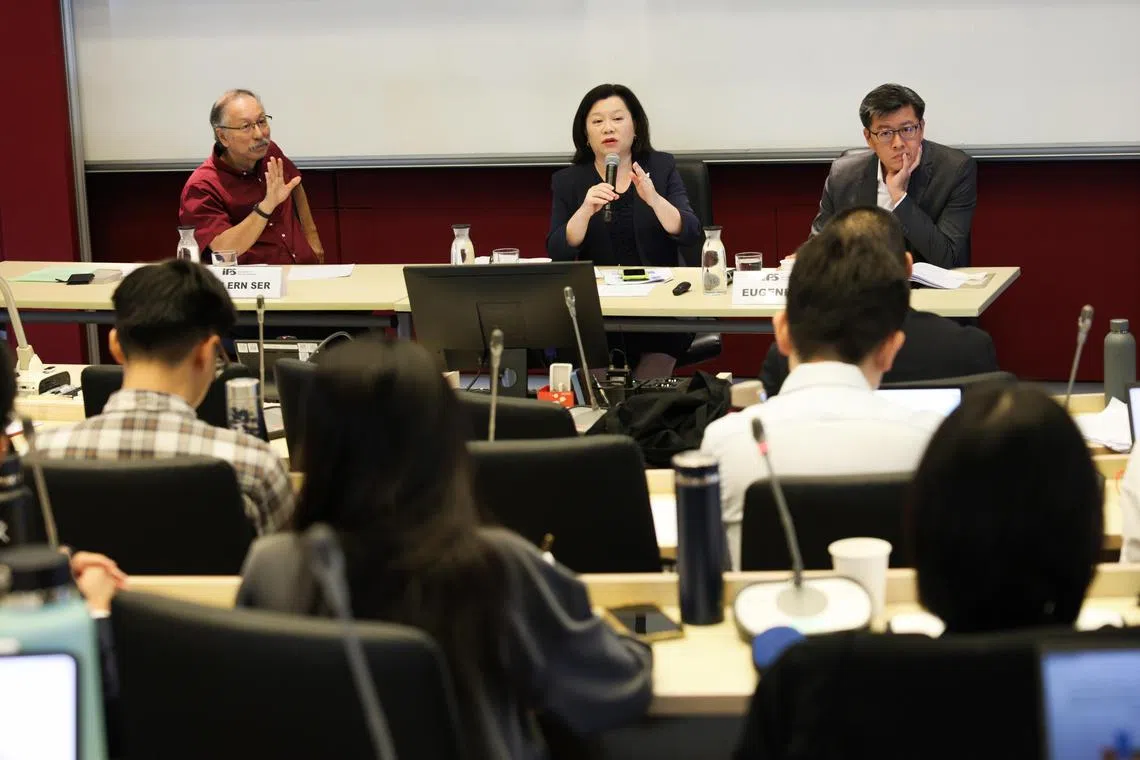S’poreans view China’s influence as slightly more positive than that of US
Sign up now: Get ST's newsletters delivered to your inbox

Singaporeans believe that China far outstrips the US in influence over Asia, and that the gap will only widen in 10 years’ time, an IPS survey found.
PHOTO: REUTERS
Follow topic:
SINGAPORE - China’s influence on Asia and the world is viewed slightly more positively than that of the US, according to a survey of some 1,000 Singapore citizens aged 21 and above.
Singaporeans also believe that China far outstrips the US in influence over Asia, and that the gap will only widen in 10 years’ time.
Both the US and China are perceived to have a very similar level of influence over Singapore, and the Republic did not lean towards either power compared with respondents from other Asian countries, the Institute of Policy Studies (IPS) found.
These were the key findings from the latest Asian Barometer Survey released on Sept 27, an occasional cross-national survey of attitudes and values towards governance and democracy in 15 countries and territories.
The Singapore edition is conducted by IPS, with the latest wave carried out between September and November 2023.
Half of the Singaporean respondents saw the US’ influence on Singapore today as positive, compared with 57.5 per cent who saw China’s influence here in the same light.
Meanwhile, 28.2 per cent more respondents said China has the most influence over Asia today, rather than the US. The perceived gap nearly doubled when respondents were asked if China (59.1 per cent) or the US (6.9 per cent) would be more influential in the region in a decade’s time.
That said, Singaporeans have cooled somewhat on the amount of influence China has on Asia, compared with in the last survey in 2020.
The number of respondents who felt that China has the most influence over Asia today fell by more than 20 percentage points, while those who saw China exerting a great deal of influence over Singapore receded by 17 percentage points.
Dr Tan Ern Ser, adjunct principal research fellow and academic adviser at IPS Social Lab, said this could be due to China’s declining economic miracle. China is grappling with a real estate crisis, while youth unemployment climbed to 18.8 per cent in August
Responses collected from the last three waves (2014, 2020 and 2023) found that, on aggregate, the extent of influence of both the US and China on Singapore was very close, with a slight edge to China.
The 2020 edition found that Chinese and older respondents here were more likely to view China as the more influential power, but Dr Tan said there were no significant differences between races for the latest survey.
Researchers analysed the latest data for variables such as political interest, age, gender and ethnicity, and found that they had no effect on how Singaporeans assessed the quality of influence the US and China had on Singapore.
Income was the only significant variable – those with higher incomes were more likely to see the US and China as equally influential on Singapore.
In contrast, such variables could predict how respondents in Taiwan, Vietnam and the Philippines viewed the quality of influence of the US and China on their respective societies, said IPS.
For instance, older Filipino respondents aged 56 and above were more likely to have a more positive view of the US. The Philippines was an American colony until 1946, and remains a close US ally.
In Taiwan, those aged 36 and above – and particularly those who were 56 years old and above – were more likely to be pro-China. Older citizens may have a stronger affinity with or even have their own personal histories tied to mainland China, noted IPS senior research fellow Gillian Koh, who was the principal investigator for the survey.
Meanwhile, Vietnamese respondents with stronger attachment to authoritarian values were likely to be pro-China, as their political values were more aligned to the political system of the Chinese regime, she added.
That Singaporeans view the two major powers in the same way suggests that people here see their merits in equal measure, said Dr Koh, adding: “No political values, nothing ideological, so to speak, is at play.”

(From left) IPS Social Lab adjunct principal research fellow Tan Ern Ser, IPS senior research fellow Gillian Koh and SMU law don Eugene Tan at an IPS panel on the survey results on Sept 27.
ST PHOTO: GIN TAY
Separately, the Ministry of Digital Development and Information (MDDI) said a demographically representative telephone poll it conducted in June 2024 found that Singaporeans felt the Republic’s relationship with the US and China had improved in the last few years.
Six in 10 Singaporeans rated the relationship with both China and US as good or very good, and said that the Republic should maintain the current level of closeness to both powers, said MDDI.
The poll of more than 2,000 citizens aged 15 years and above also showed that Singaporeans expect the Government to act in Singapore’s best interests, notwithstanding their personal views on the US or China.
More than eight in 10 polled said Singapore should act in its best interests and not take sides, said the ministry on Sept 27.

